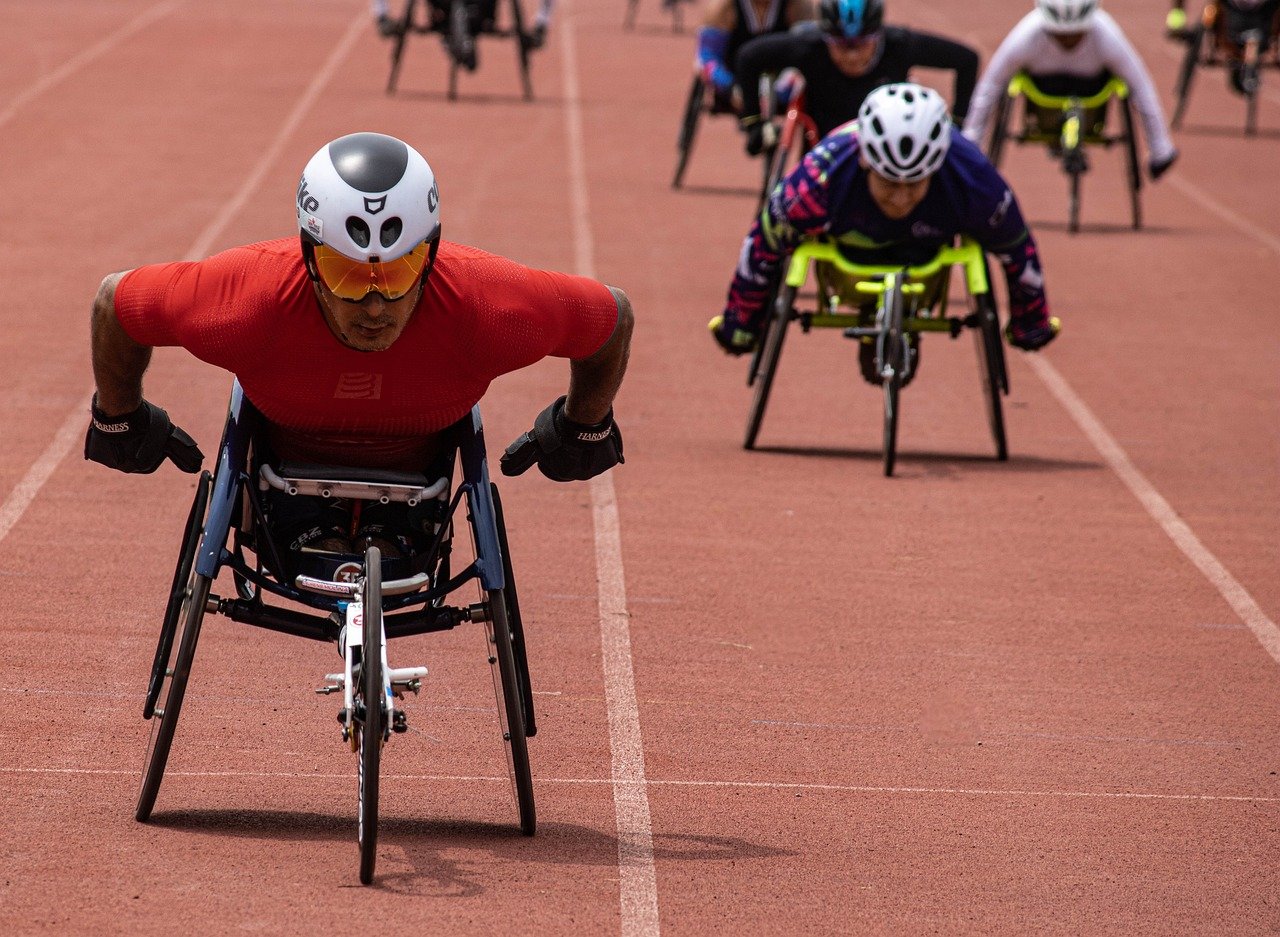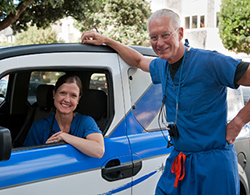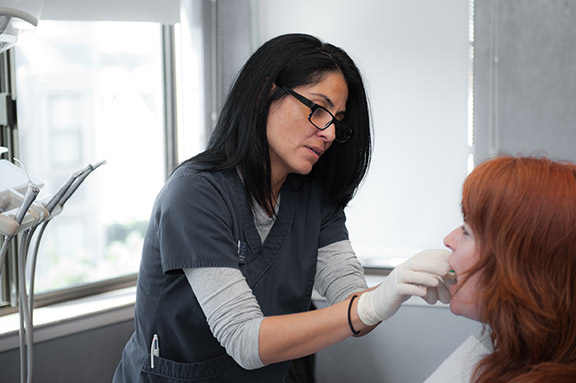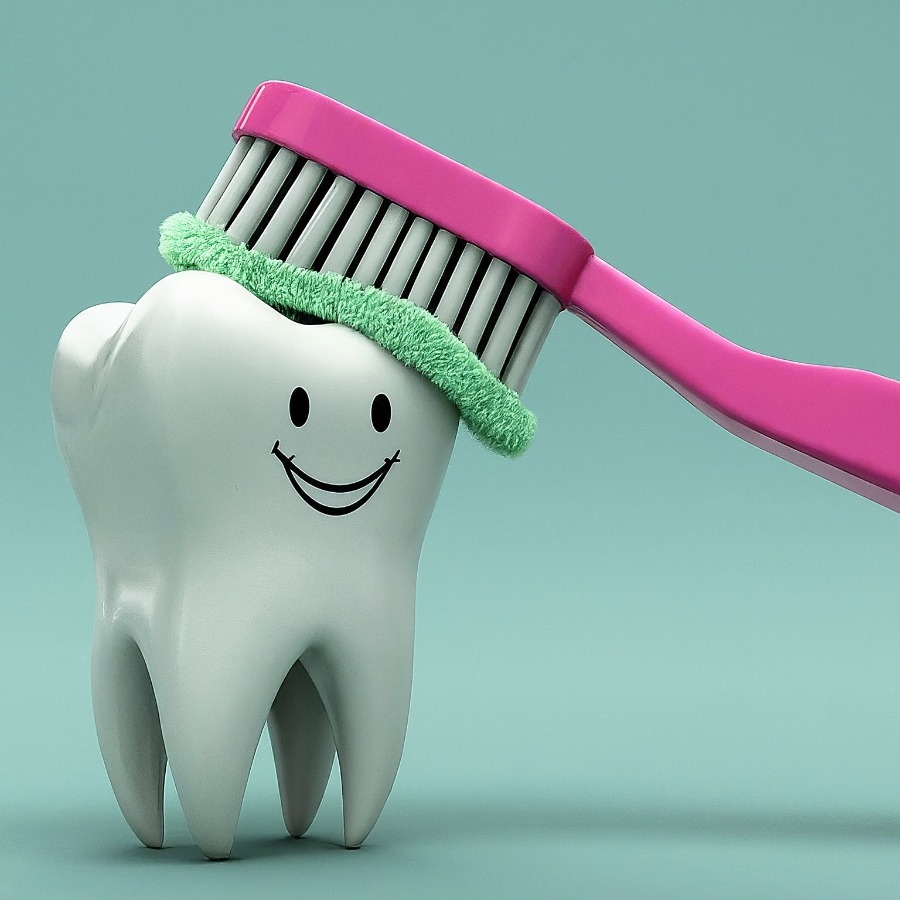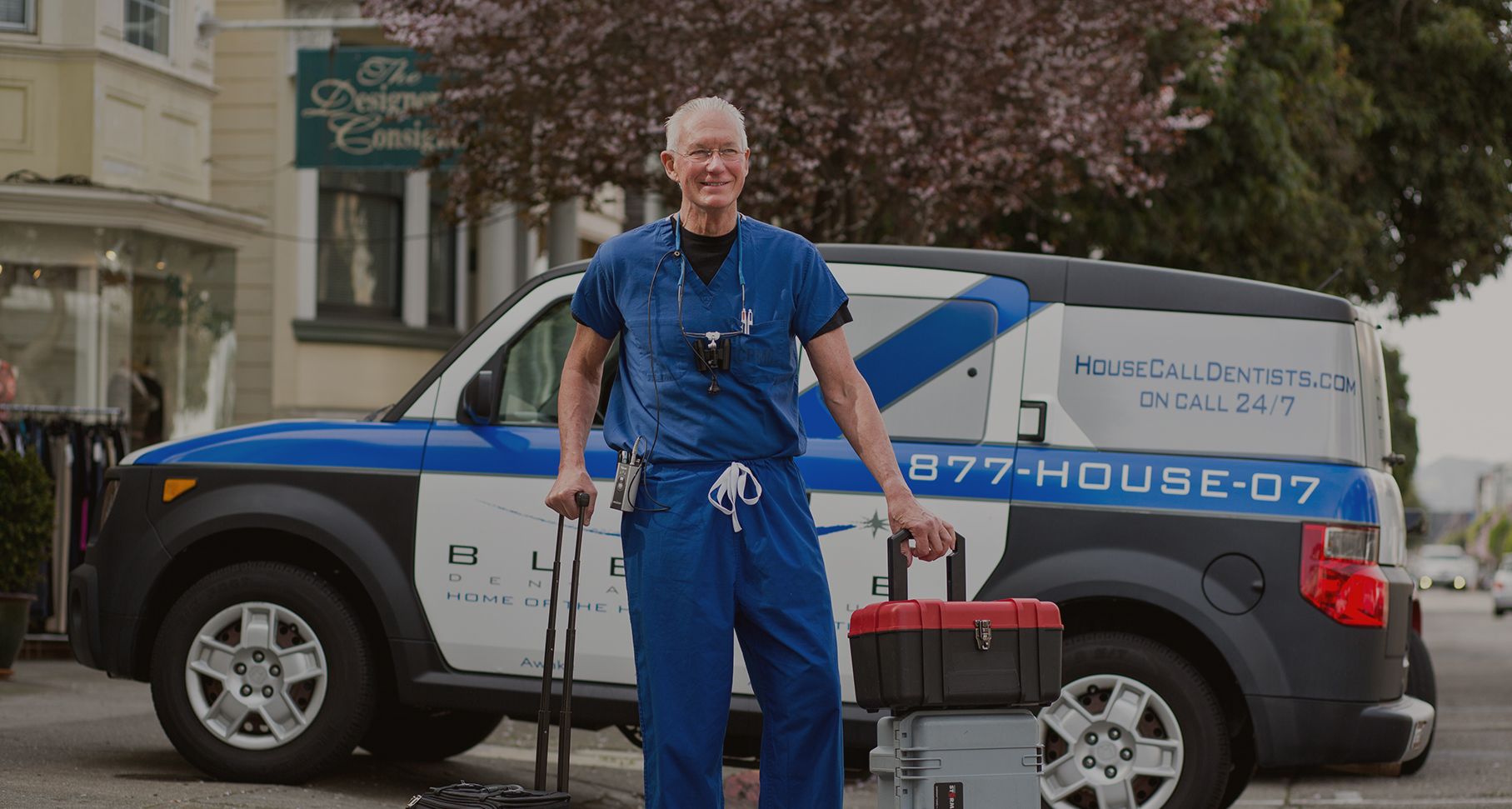Special Needs
Overcoming the Barriers to Accessible Dental Care for Disabled People
Disabled people, through their resilience and fortitude, have demonstrated throughout history their strength in overcoming obstacles. However, those challenges are more difficult to conquer when the barriers they face are erected by the societies and systems in which they live. The Paris 2024 Paralympic Games kicked off on Wednesday. Since 1960, the Paralympics have served as a reminder that despite our differences and unique abilities, we are all capable of great feats. That doesn’t mean everybody has the same access to dental care. It’s important to understand that you and your loved ones can get proper and accessible care, facilitated by advances in portable dentistry and the evolution of sleep and sedation options. This is the hallmark of the Blende Dental Group, home of the House Call Dentists.
Challenges Disabled People Face in Accessing Dental Care
Access to dental care is essential for maintaining overall health. For disabled individuals, obtaining these services often involves a series of obstacles that are rarely addressed by mainstream healthcare systems. The challenges are multifaceted, involving physical, logistical, and attitudinal barriers. These hurdles not only limit access to necessary care but also exacerbate existing health disparities, leading to a cycle of unmet needs and preventable complications.
Physical Barriers
One of the most apparent challenges is the physical accessibility of dental offices. Many dental clinics are not fully equipped to accommodate patients with mobility impairments. Simple tasks like entering the clinic, maneuvering a wheelchair in tight spaces, or transferring to a dental chair can be daunting, if not impossible, in some settings. Even when clinics are technically “accessible,” they may lack specialized equipment, such as adjustable chairs or lifts, making it difficult for patients to receive care comfortably and safely.
Communication Barriers
For individuals with sensory disabilities, communication can be a significant challenge. Patients who are deaf or hard of hearing might struggle to understand instructions if the dentist or hygienist is not trained in sign language or does not use clear communication techniques. Similarly, those with visual impairments might find it difficult to navigate the clinic or understand visual aids commonly used in dental education. Cognitive disabilities can also create communication hurdles, as some patients may need extra time or alternative methods to understand and respond to questions and instructions.
Logistical Challenges
Scheduling and attending dental appointments can be a complex process for disabled individuals. Transportation is a major issue; accessible public transportation is not always available, and relying on private transportation can be costly. For those who need assistance from caregivers, coordinating schedules adds another layer of difficulty. Moreover, some individuals might require sedation or specialized care due to anxiety or medical conditions, necessitating coordination with multiple healthcare providers, which further complicates the process.
Attitudinal Barriers
Perhaps one of the most insidious challenges is the attitudinal barrier. Some dental professionals may lack training or experience in treating disabled patients, leading to discomfort, miscommunication, or even outright discrimination. This can manifest as dentists refusing to treat certain patients, offering substandard care, or not taking the time to understand the unique needs of their patients. Such attitudes not only undermine the quality of care but also discourage disabled individuals from seeking dental services in the first place.
The Consequences of Dental Inaccessibility for Disabled People
The inaccessibility of dental care for disabled individuals has significant consequences. Poor oral health is linked to a host of other health issues, including heart disease, diabetes, and respiratory infections. For those with disabilities, these risks can be even more pronounced, especially when underlying health conditions are present. The lack of preventive care often leads to more severe dental problems down the line, which are more difficult and expensive to treat.
Over 61 million people in the United States live with disabilities, including 7 million children. These individuals often go without proper oral care given the lack of dentists who have the specialized skills and training to serve them. Addressing these challenges requires a comprehensive approach. Dental practices need to be more inclusive in their design and operation, ensuring physical accessibility, providing specialized equipment, and training staff to meet the needs of disabled patients. On a systemic level, dental and medical care providers must coordinate to develop and promote a value-based care approach to treatment. For Blende Dental Group, home of the House Call Dentists, pioneering innovative ways to treat disabled people has been the cornerstone of our mission.
Dedicated Dental Care Solutions for Disabled People
Sedation Dentistry
Sedation modalities represent a breakthrough in dentistry. Patients with disabilities, special needs, phobias, developmental or cognitive challenges, and physical limitations can receive the care they need without discomfort. For patients and dentists alike, sedation options open up new treatment approaches to those who would otherwise struggle to access oral health care. At Blende Dental Group, we’re a team of medical dentists with over 40 years of experience in all sedation modalities. Our doctors have hospital privileges and rely on MD anesthesiologists to provide the safest treatment outcomes.
The first step in understanding sedation options is to recognize that not all of these modalities are the same. Put another way, sedation doesn’t always mean you’re going to sleep. Let’s take a look at the primary modalities and how they work in order to magnitude.
- Local anesthetics like novocaine or lidocaine numb a specific part of the body to prevent pain during procedures. The dentist numbs only the part of your mouth where you need a filling or extraction. Local anesthesia is always used, even in combination with any other sedation methods.
- Nitrous Oxide is a gas that helps decrease anxiety and allows you to feel more relaxed when inhaled. It’s administered through a small rubber inhaler placed over your nose. The recovery time is very short, and the effects pass within minutes, so you’ll be able to drive yourself home.
- Oral Conscious Sedation involves taking a pill about an hour before your treatment, which makes you feel relaxed and drowsy. You’ll still remain awake during your treatment so you can interact with and respond to the dentist. The sedative effects can last for up to four hours. The most commonly used medications are Halcion or Valium. For the majority of dental practices that advertise sedation, this is typically the highest level they provide, in combination with nitrous oxide and local anesthetics.
- Intravenous Sedation (IV) induces a lower level of consciousness. Sedative and analgesic medications are run through an IV, but patients still have full control of their breathing. IV sedation is fast acting, taking hold within one minute. The flow of solution can be controlled to increase or decrease the level of sedation safely and precisely. For people who have deep phobias of dental work, IV sedation allows them to sleep through the treatment with no discomfort, trauma, or memory of the procedure. It’s predictable, comfortable, and ensures that your dental treatment can be easily completed. The recovery is simple and quick.
Most general dental practices, however, cannot offer the full range of sedation services. Patients who require modalities beyond nitrous oxide often find themselves being referred to specialists for oral conscious sedation, IV sedation, and general anesthesia.
When people receive any type of sedation, the medications must be administered by a trained and licensed professional. Only qualified and credentialed individuals can monitor the sedation level achieved, vital signs, and adverse effects while being equipped to handle any emergencies that arise.
At Blende Dental Group, we recommend that patients look for practices that have developed a multidisciplinary approach to managing the complexities of treating patients with diverse needs, staffed by physician anesthesiologists, medical doctors, and leading dental specialists who deliver care in-office or at local hospitals. Unlike dentist anesthesiologists, physician anesthesiologists are medical doctors just like your primary care physician and surgeon. They specialize in anesthesia care, pain management, and critical care medicine, and have the necessary knowledge to understand and treat the entire human body.
When an anesthesiologist is present, he or she is dedicated solely to monitoring your wellbeing as the dentist works.
In-Home Dental Treatment for Disabled People
Disabled people with functional or physical limitations experience profound difficulty accessing standard dental care. The problem is further complicated by the lack of dentists who have the specialized skills, training, and capabilities to serve their unique needs. The management of this population’s oral health often falls on the shoulders of overwhelmed family members or caregivers. Far too often, they avoid seeking dental assistance because providers can’t deliver the level of care needed to comfortably fit the unique needs of these patients.
- Complex genetic conditions
- Cognitive and physical limitations
- Developmental disability including autism
- Complex medical conditions
State-of-the-art portable dental technologies make setting up onsite visits a breeze in the home or a residential community. Dental teams can treat patients using portable equipment that replicates the essential tools found in the traditional office. Restorative and emergency care take place in the comfort and safety of the patient’s home.
Forgoing dental care should never be an acceptable option. The modernization of house calls, mobile dentistry, and portable equipment overcomes these hurdles for seniors and those who care for them. It’s also a cornerstone of the Blende Dental Group, which is home to House Call Dentists.
Our fully equipped team of dentists, registered dental assistants, and mobile hygienists provide in-home dental evaluations and treatments with portable dental equipment. Based on our assessment, we determine the level of care required and whether treatment can be delivered in the home or under sedation in our office or the hospital. Providing sedation in any of these locations allows us to complete care in as few as one or two visits.
We partner with families, care facilities, and health care providers – including dentists, physicians, care managers, and social workers – to develop a targeted daily dental care plan that complements successful treatment. When disabled patients experience pain, we’re dedicated to making treatment as comfortable as possible. Initial visits include exams, digital x-rays, cleanings, and emergency care as needed to rapidly eliminate infection or pain. Our medical and dental teams meet or exceed hospital grade standards for sterilization safety.
Our multidisciplinary team of nationally recognized dentists, anesthesiologists, and MDs allows us to offer palliative treatment to full-mouth restoration in the safety and comfort of your home. We bring state- of-the-art mobile dental technologies to people who have difficulty traveling to a dentist. We provide preventative, restorative, and emergency care 24/7/365. Our teams handle the setup and breakdown of all portable equipment, as well as access to our teledentistry platform, which provides real-time access to video visits with dentists, treatment plans, and more.
Enabling World-Class Dental Care for Disabled People
The Paralympic Games have grown into one of the largest sporting events in the world, showcasing the achievements of athletes with disabilities and raising awareness of disability issues globally. During the events, the accomplishments and talents of disabled people are on full display for the world to see. Yet, the structure of the world itself is not generally conducive to providing disabled people with access to the crucial services they need and deserve. Health should never be compromised as a matter of convenience. That’s why the Blende Dental Group, home of the House Call Dentists, has made it our mission to support and champion the oral health of disabled patients for over three decades. Contact us to learn more about our specialized dental solutions for disabled patients. Or schedule your first consultation today.
Image by MIGUEL ANGEL CASTELAN from Pixabay
Let's brighten
that smile
The when and where are up to you.
